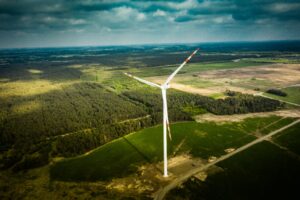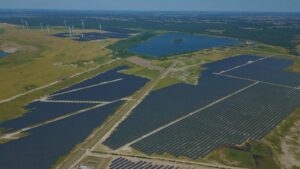Parliament approves binding 2030 target for renewables (32%) and an indicative target on energy efficiency (32.5%) that will play a crucial role in meeting the EU’s climate goals.
Parliament on Tuesday confirmed the provisional agreement reached with the Council in June on energy efficiency (434 votes to 104 with 37 abstentions), renewables (495 votes to 68 with 61 abstentions) and governance of the Energy Union (475 votes to 100 with 33 abstentions) – three important legislative files that are part of the Clean Energy for All Europeans package. By 2030, energy efficiency in the EU has to have improved by 32.5%, whereas the share of energy from renewables should be at least 32% of the EU’s gross final consumption. Both targets are to be reviewed by 2023. These targets can only be raised, not lowered.
Lower energy bills and the right to become a renewable self-consumer
By making energy more efficient, Europeans will see their energy bills reduced. In addition, Europe will reduce its reliance on external suppliers of oil and gas, improve local air quality and protect the climate.
For the first time, member states will also be obliged to establish specific energy efficiency measures to the benefit of those affected by energy poverty. Member states must also ensure that citizens are entitled to generate renewable energy for their own consumption, to store it and to sell excess production.
Moving towards second-generation biofuels
Second generation biofuels can play a significant role in reducing the carbon footprint of transport and at least 14% of fuel for transport purposes must come from renewable sources by 2030.
However, first generation biofuels with a high risk of “indirect land use change” (ILUC i.e. when land is converted from non-crop cultivation – such as grasslands and forests- to food production, which increases CO2 emissions) will no longer count towards the EU’s renewable energy goals from 2030. From 2019, the contribution of first generation biofuels to these goals will gradually be phased out until it reaches zero in 2030.
New governance to achieve the Energy Union
Each member state must present a ten-year “integrated national energy and climate plan” with national targets, contributions, policies and measures by 31 December 2019, and every ten years thereafter.
Quotes
Energy efficiency rapporteur Miroslav Poche (S&D, CZ) said: “Increased energy efficiency is a win-win policy for all Europeans. It is a good deal for our citizens, as it will bring about major reductions in energy consumption, thus reducing bills. But it is also great news for the competitiveness of European industry, reducing costs and stimulating investment.”
The rapporteur for renewables José Blanco López (S&D, ES) said: “We disincentivised investments in new production of food crop-based biofuels and we have pushed for advanced biofuels. We also managed to strengthen self-consumption as a right, and included the Parliament’s wish for a ban on charges and fees on self-consumed energy as a general rule.”
Next steps
Once the Council formally adopts the deal, the new rules will be published in the Official Journal, and enter into force 20 days after publication. The regulation on governance will be directly applied in all member states, whereas member states will have to transpose the new elements of the other two directives into national law no later than 18 months after its entry into force.
Source: European Parliament








